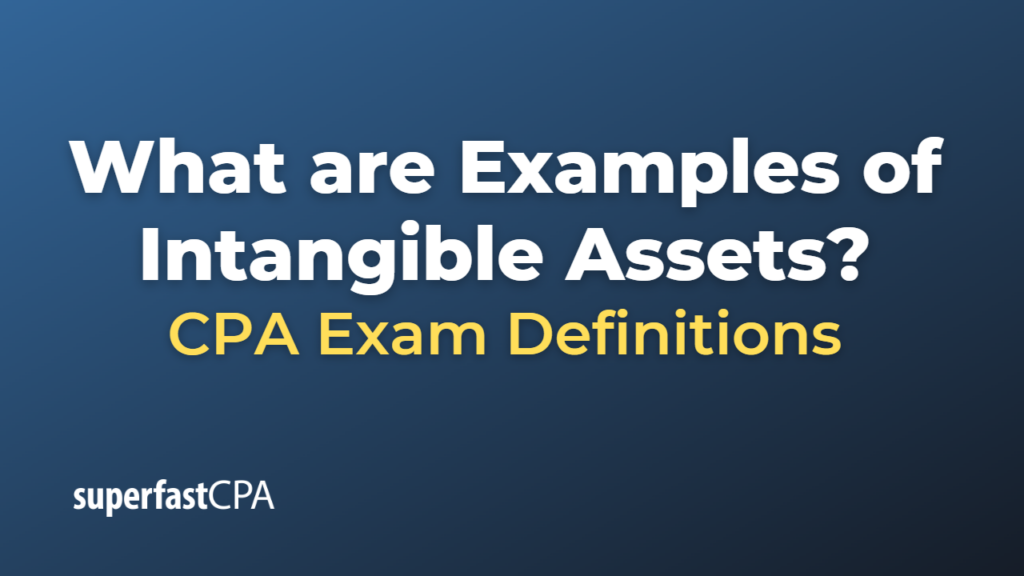Examples of Intangible Assets
Intangible assets are non-physical assets that have a monetary value since they represent potential revenue. Intangible assets can be classified as either definite or indefinite depending upon the specifics of that asset. Here are examples of each:
Definite Intangible Assets
These assets have a specific lifespan and are usually acquired from another entity or have a clear cost associated with their creation. They are often amortized over their useful life. Examples include:
- Patents: These give the holder exclusive rights to produce or sell a particular invention or process.
- Copyrights: These give the holder exclusive rights to reproduce, distribute, display and perform a work, as well as to prepare derivative works.
- Trademarks: These are symbols, words, or phrases legally registered to represent a company or product.
- Software: While this might be considered a tangible asset if it is part of a physical product like a disc or a flash drive, it is often considered an intangible asset because its value comes from the coding of the software, not the physical medium that carries it.
- Licensing Agreements: These grant a party the opportunity to use intellectual property owned by another entity for a certain period.
Indefinite Intangible Assets
These assets do not have a specific lifespan and they aren’t amortized. Instead, they are assessed each year for impairment. If an asset is found to be impaired, its value is written down. Examples include:
- Goodwill: This is the amount paid in an acquisition that exceeds the fair market value of the net assets. It represents the reputation, customer relations, and other similar factors that might lead a company to exceed standard return on investment.
- Brand Equity: This represents a premium that a company generates from products with a recognizable name when compared to a generic equivalent.
- Trade Secrets: These are proprietary systems, formulas, strategies, or other key data that aren’t available to the public and provide a competitive advantage.
- Franchises: A franchise agreement allows one business to operate under the trademarked name of another.
Remember that just because an asset is intangible doesn’t mean that it doesn’t have value. Indeed, in many modern businesses, intangible assets represent the bulk of the firm’s potential worth.













